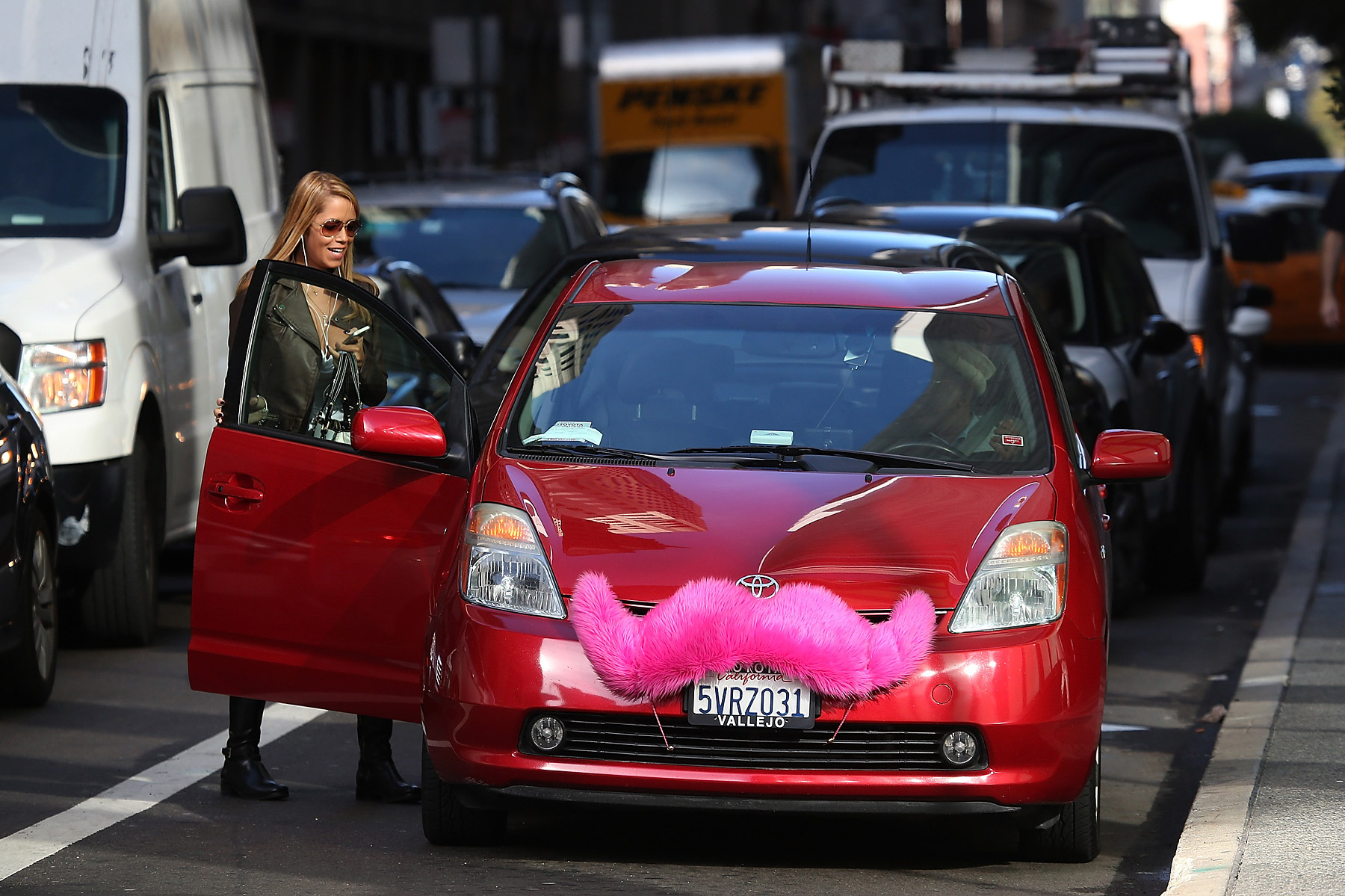
The ride-app services Uber and Lyft were dealt a setback by two separate California judges Wednesday, who ruled that juries would decide the fate of lawsuits that could have broad implications for a range of tech startups.
The lawsuits were filed by workers who allege they are misclassified as independent contractors so the businesses don’t have to reimburse the drivers’ expenses like they would for employees. The plaintiffs believe they’re owed money for outlays like gas, insurance and vehicle maintenance—costs that could be enormous if juries determine they’re owed to tens of thousands of active drivers working for Lyft and Uber in California. The companies had sought separate summary judgments dismissing the cases, but the judges in California’s North District Court denied them, saying their peers would have to determine the status of the drivers.
“This is a huge milestone and major victory for drivers in both cases,” says Shannon Liss-Riordan, a Boston-based labor lawyer working on both cases. Her firm has brought cases on behalf of a range of low-wage workers, from Starbucks baristas to exotic dancers to house cleaners. “There’s this whole wave of companies who seem to think that they’re above the law and don’t need to comply with employment and wage laws,” she says. “They’re claiming there’s something new and different because their services are provided through technology, through a smartphone … but there’s nothing new about this.”
A spokesperson for Lyft says they are not commenting on pending litigation. Uber sent TIME a similar statement.
See Uber Protests From Around the World




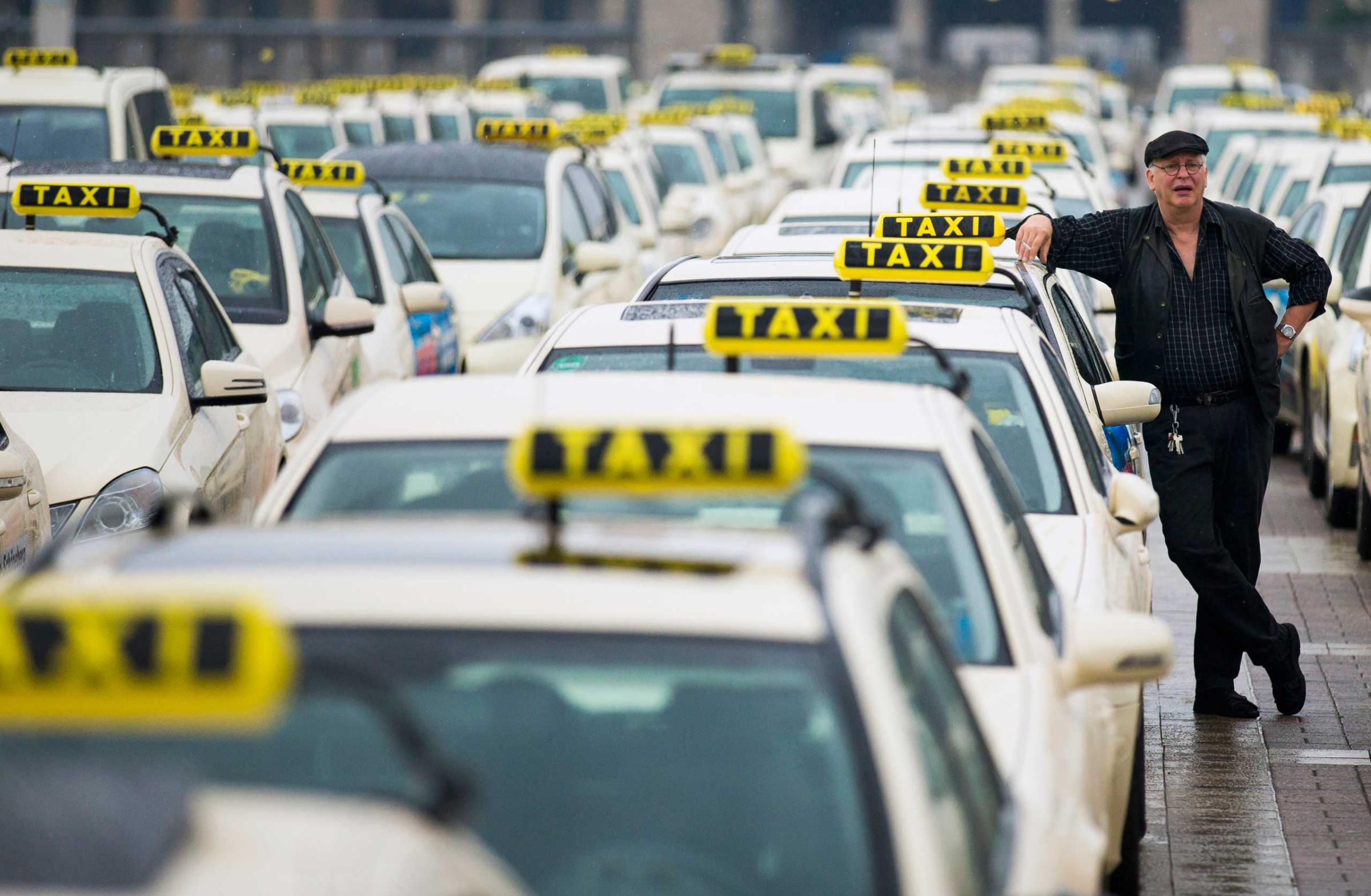
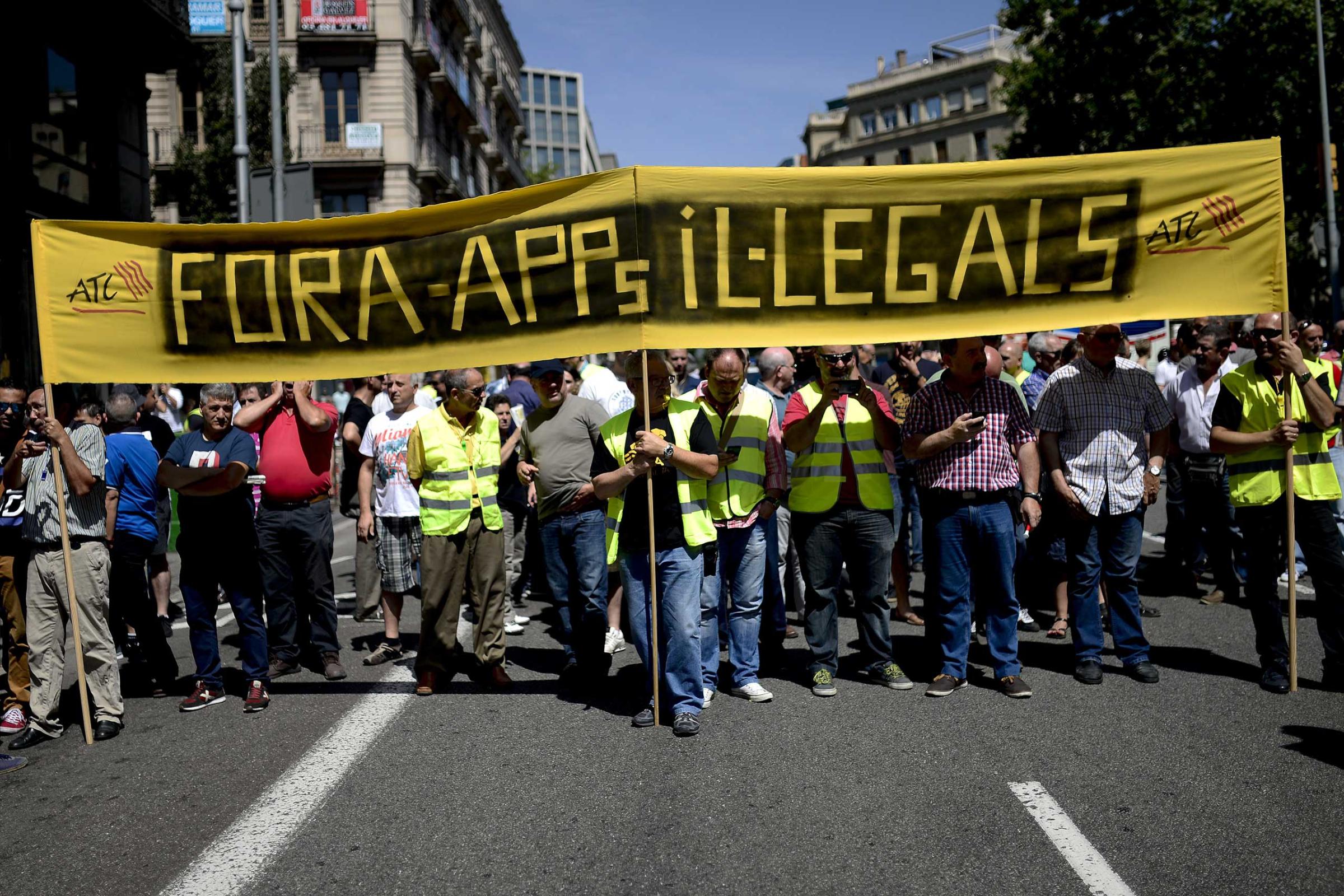
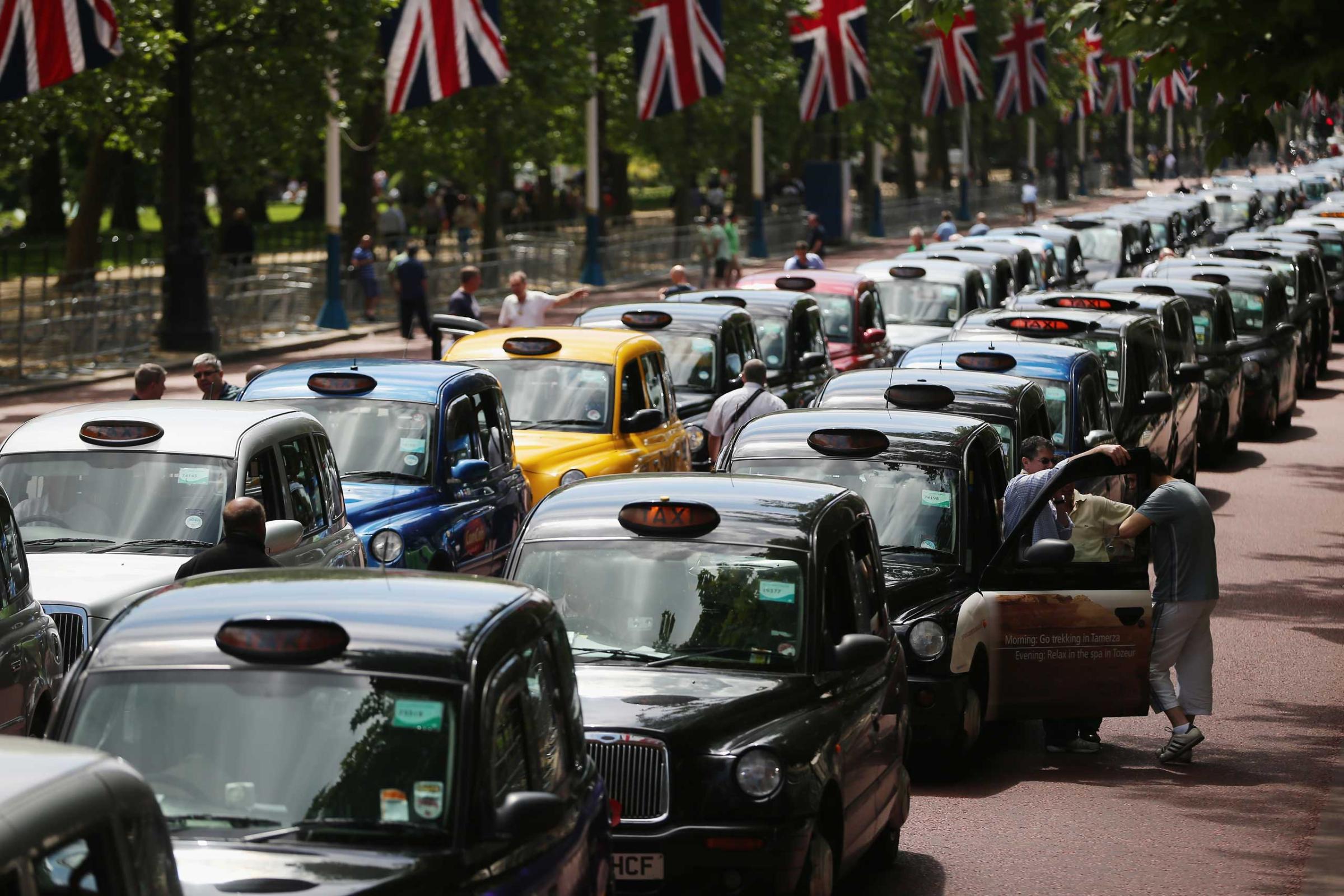
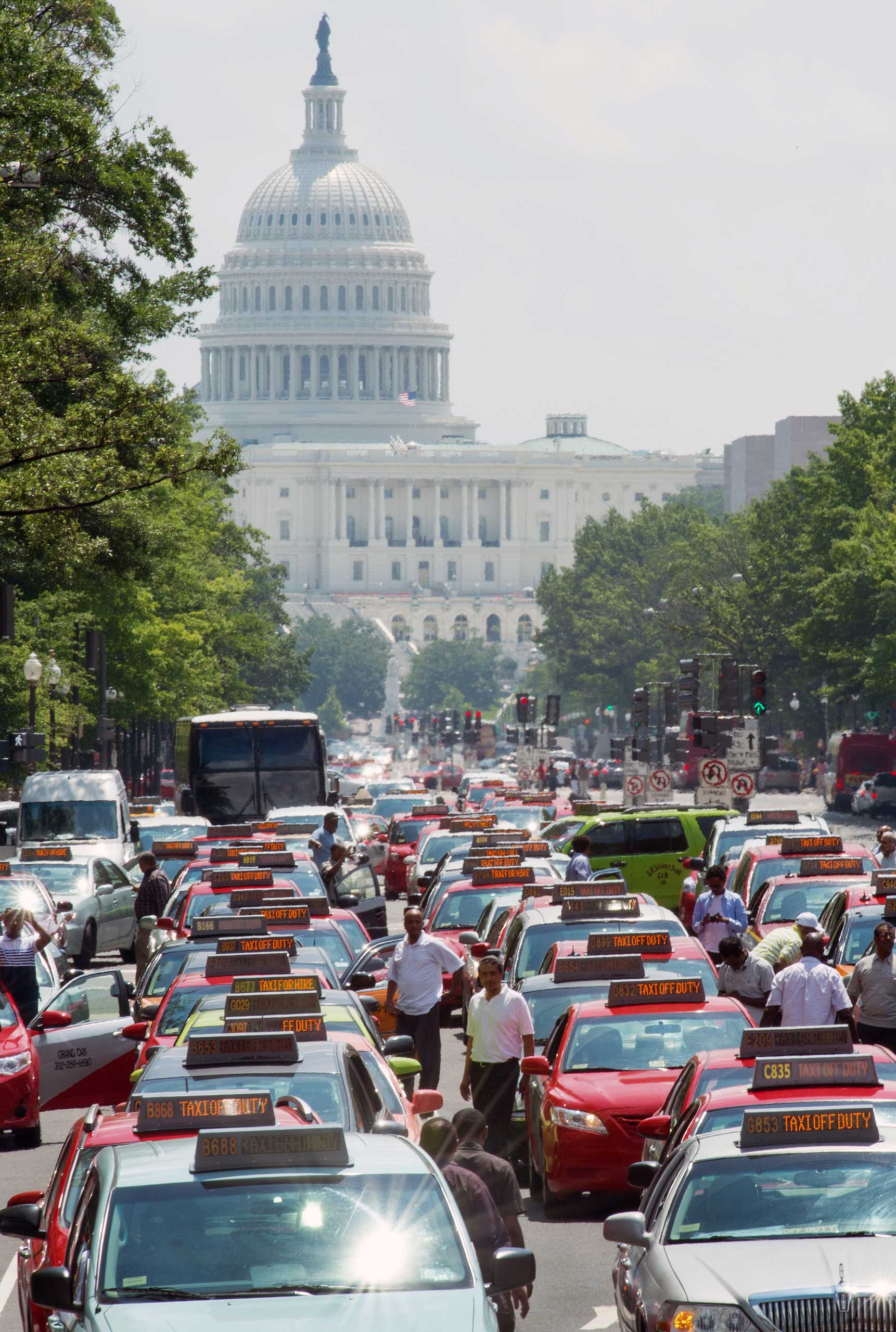
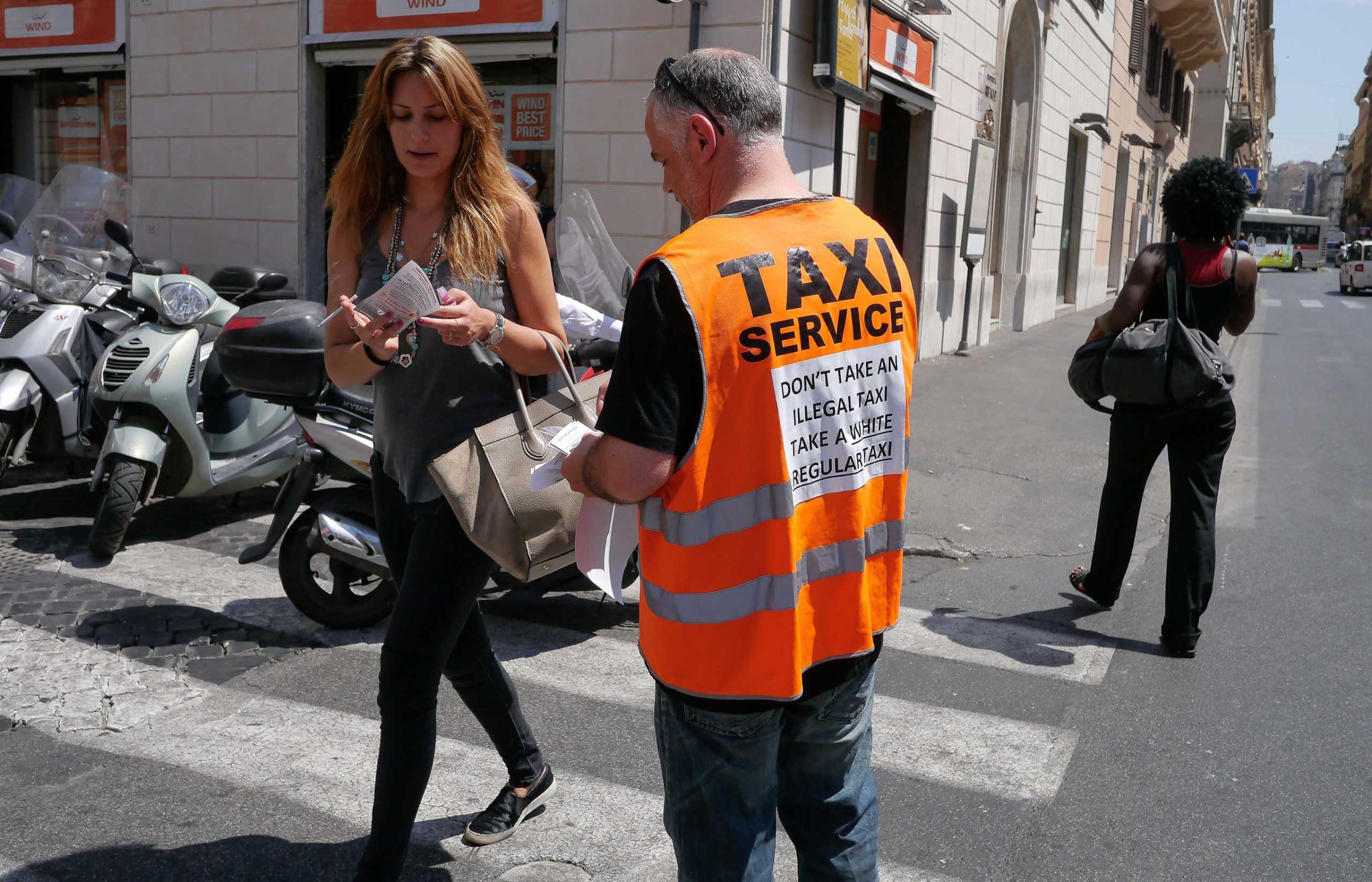

The legal fight is being closely watched by the many other startups who depend on the growing “1099 workforce,” people who are generally willing to trade a 9-to-5 work week and health insurance for a more flexible job. The ranks of this workforce have been growing along with the public’s appetite for the services they provide, like on-demand rides, groceries, hot meals, flowers and house cleaning. “It’s not only the consumer who says ‘I want it on demand.’ The supply is on demand,” says Ravi Dhar, a Yale management professor.
Businesses that use these on-demand workers have been able to scale fast partly because they are not on the hook for treating their personal shoppers or drivers or deliverymen like employees. Among the other startups that could be affected by the eventual rulings is Instacart, a company that organizes workers who shop for and deliver groceries to users in as little as an hour. The company is less than three years old and has been valued at $2 billion. Just as Uber has long insisted that the company is a not a transportation service, executives at Instacart say that they are not a grocery delivery company but a software platform whose app allows people to deliver groceries to other people who want them.
Liss-Riordan notes that in rejecting the companies’ requests to have the cases dismissed, the judges were also rejecting the notion that Uber and Lyft are not in the business of providing transportation. As U.S. District Court Judge Vince Chhabria wrote in his ruling:
Lyft tepidly asserts there is no need to decide how to classify the drivers, because they don’t perform services for Lyft in the first place. Under this theory, Lyft drivers perform services only for their riders, while Lyft is an uninterested bystander of sorts, merely furnishing a platform that allows drivers and riders to connect, analogous perhaps to a company like eBay. But that is obviously wrong.
Yet that doesn’t mean the juries will have an easy decision to make. Chhabria noted in his ruling that the labor laws at issue were written in a pre-sharing economy era. “As should now be clear,” he wrote, “the jury in this case will be handed a square peg and asked to choose between two round holes. The test the California courts have developed over the 20th Century for classifying workers isn’t very helpful in addressing this 21st Century problem.”
For now, these cases apply only to drivers in California, though Liss-Riordan says she has been contacted by hundreds of drivers and intends to create a nationwide class-action suit. She expects Uber to invoke an arbitration clause that prohibits many drivers from joining a class-action suit, forcing the them to bring any claims against the company on a individual basis. Lyft has waived a similar clause. “If Uber really wants to try these cases one by one in arbitration, we’ll do that,” she says.
If the juries find that drivers for the two biggest players in the new ride-app economy are owed for gas, that could lead to other standard employee benefits. The companies could be on the hook for workers’ compensation and unemployment insurance. They could be forced to pay drivers overtime and make sure they’re at least making minimum wage. Uber, the larger company, would also be looking at larger payouts. While Lyft has been valued at $2.5 billion, Uber has garnered valuations of $40 billion.
Read next: Cab Drivers No Longer Required to Learn N.Y.C.’s Streets
More Must-Reads from TIME
- Cybersecurity Experts Are Sounding the Alarm on DOGE
- Meet the 2025 Women of the Year
- The Harsh Truth About Disability Inclusion
- Why Do More Young Adults Have Cancer?
- Colman Domingo Leads With Radical Love
- How to Get Better at Doing Things Alone
- Michelle Zauner Stares Down the Darkness
Contact us at letters@time.com